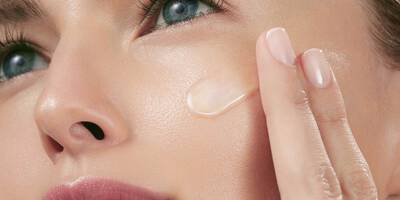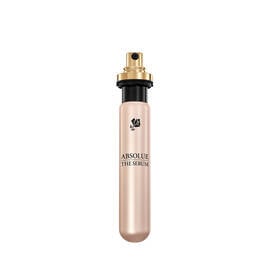Our Guide to Skin Surface Cell Turn Over: How Skin Surface Cell Turnover Effects Skin
Article Published: 28 April 2022
Learn how Skin Surface Cell Turnover affects skin and slows down as we age. Read Lancôme guide and discover Absolue The Serum Skin Surface Cell Renewing Serum.

The look and feel of your skin can be affected based on many different internal and external processes – one of which is skin surface cell turnover – the natural process when skin sheds in dead skin cells, and it can have a real effect on the way your skin looks.
To learn more about skin surface cell turnover we asked Kayte Epperly, Scientific Communication Liaison at L’Oreal Research & Innovation US Skin Care Development to talk us through the skin surface cell renewal process and our new innovation – Absolue The Serum a luxurious serum that helps accelerate skin surface cell renewal.
The new Absolue The Serum Skin Surface Cell Renewal Serum is a concentrated formula that helps accelerate epidermal cell renewal to ultimately help achieve younger-looking skin. It revitalizes skin with millions of new surface cells and immediately after use skin is firmer and more hydrated, as tone is improved.
Lancôme’s Expert Guide to Skin Surface Cell Turnover
What actually is skin surface cell turnover and what does it involve?
Surface cell turnover is the shedding of dead skin cells (corneoocytes) from the skin’s most outer layer, the stratum corneum. Keratinocytes enter the stratum corneum from the lower layers of the epidermis and transform into a corneocyte and then will be shed.
How often does skin surface cell turnover occur?
The stratum corneum is made up of 10-30 very thin layers of cells and will shed approximately 1 layer of corneocytes per day. Overall, the cells in the stratum corneum have roughly a two-week cycle from when they enter the stratum corneum as they transform into a corneocyte and are shed.
Is it true the skin surface cell turnover slows as we age? What affect does this have on the skin and why does it occur?
It is true that skin cell turnover slows as we age. One of the reasons this happens is that the cell production slows down and the amount of time it takes a newly formed cell to complete its life cycle slows down as well. As you age you are not generating new cells as quickly as you did at a younger age.
Is there anything else that can slow down skin surface cell renewal (eg: drinking, smoking, skin type)
There are various factors that can impact skin surface cell renewal like UV exposure, stress, hormones, as well as certain medical conditions.
Is there anything that can be done to accelerate the skin surface renewal process?
To help with skin surface renewal you can look for products that contain ingredients that are known to help exfoliate the skin. Some well-known examples are Retinol, Salicylic Acid, LHA (Capryloyl Salicylic Acid), Lactic Acid, Glycolic Acid.
Our Absolue The Serum has been demonstrated to show a positive effect on skin surface cell renewal, meaning that it does help to improve the removal of the dead skin cells found on the surface of your skin.
What are some of the benefits one can receive from accelerating skin surface renewal?
Some benefits of improving skin surface renewal are improved skin radiance, smoother looking and feeling skin, improvement of skin tone, and visible improvement of fine lines and wrinkles.
Our Absolue The Serum showed that the serum improved the look of skin radiance and smoothness over time based on clinical testing. In consumer studies women agreed that Absolue The Serum left skin feeling softer, more moisturized, nourished and supple.
*Based on consumer testing with 51 women at 8 weeks.


